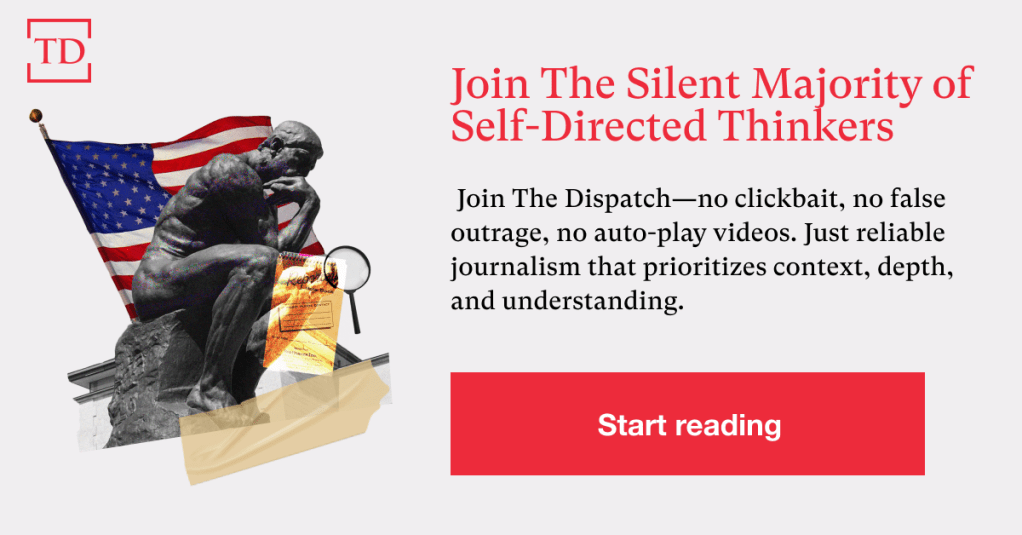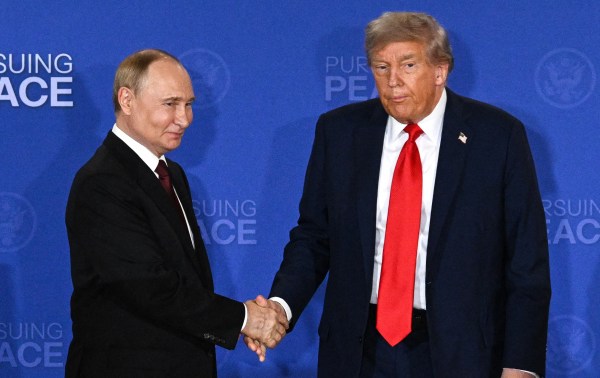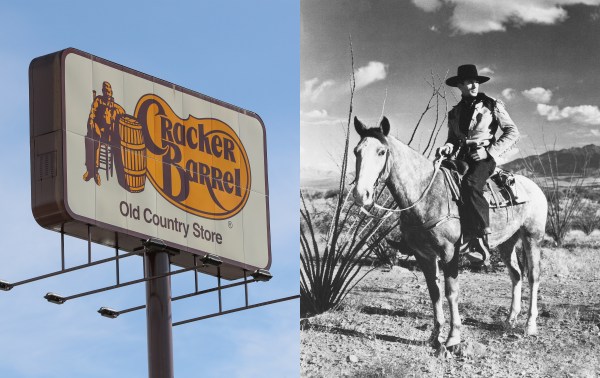Nick Offerman, the terrific actor best known to the world as Ron Swanson, apparently had a bit of a slow start to his career and received this advice from a casting agent: “Just grow out your mustache and wait for your sheriff years.” I’m still a bit younger than Andy Rooney was when he started the 60 Minutes end-of-show segments people remember him for—and you cannot really grow out your eyebrows to that famous television commentator’s fat-caterpillar level by an act of will—but I do feel, already, my inner Andy Rooney trying to get out from time to time.
Not that I’m actually much like Andy Rooney. He wasn’t always the goofy old man complaining about the tiny indignities of modern life at the end of 60 Minutes; young Andy Rooney was a badass, a reporter who was awarded a Bronze Star (among other decorations) for his service as a correspondent in World War II, flying on bombing raids over Germany, first on the scene at the critical moment of the capture of the Ludendorff Bridge, one of the first reporters to see the concentration camps. When CBS declined to broadcast one of his commentaries (also about World War II) in 1970, he quit a very comfortable job and took the piece to PBS. CBS eventually figured out that they’d screwed up, and Rooney was back at the network in a couple of years. Andy Rooney was a guy who did the things.
As a non-paying reader, you are receiving a truncated version of Wanderland. You can read Kevin’s full newsletter by becoming a member here.
I’ve been in Los Angeles the past few days working on a story for The Dispatch, which is why you’re getting an abbreviated Wanderland this week. (The newsletter will return in its familiar form next week.) And nothing brings out my inner Andy Rooney like air travel, or travel in general, or, you know, having to leave my house and interact with any old random H. sap. outside of my circle of family and friends. I don’t want to go the same route as Florence King, the brilliantly acerbic National Review writer whose “Misanthrope’s Corner” column was many readers’ favorite feature for many years, and who walked the misanthropic walk with authentic commitment, eventually locking herself in her house to do nothing but write and drink. I couldn’t do that, for all sorts of reasons, some of them personal (lovely wife and charming young children and all that), but some of them professional: I can write or drink, but I cannot write and drink.
And, so, a few sober observations en route:
U.S. air travel is, of course, a goat rodeo. Like the DMV, it is one of those places in American life where the people who did the at-home reading in high school get held hostage by those who didn’t. From the lazy and stupid and cow-eyed people who work at the airline check-in counters to the lazy and stupid and cow-eyed and thieving miscreants who star in the TSA’s imbecilic security theater, getting on an airplane provides a textbook example of what happens when you combine mediocrity with job security.
There are few, if any, better examples of corporatism in American public life than air travel, with its heavily regulated cartels, public- and private-sector unions, airport authorities, etc. The point of corporatism—too often misunderstood—is not to maximize corporate profits but to coordinate business and political activity to maximize the political benefits of economic activity, by creating a lot of relatively high-wage, high-benefit, high-security jobs without too much consideration about whether that actually serves the interests of consumers and shareholders. From the politicians’ point of view, people are not assets but liabilities, and one way to take that liability off the books is to put the person into a job with good pay and benefits and very low chances of being laid off—and it does not matter to the politicians if that job actually creates any real value. They would have us use spoons to dig trenches if they could.
(You know the story: Milton Friedman was visiting a Chinese public construction project and was flabbergasted that the workers were using picks and shovels and carts instead of modern earth-moving machinery, and asked his hosts what was going on. “We know how to create jobs,” came the answer. Friedman thought about the answer for a moment and then asked: “Then why not use spoons?”)
It is important to put the first thing first. High-paying jobs are great, and I am happy for people to have them, but the purpose of a steel mill is not to produce high-paying steelworker jobs—it is to produce steel. The purpose of an airport, an airline, or an air-travel system is not to create jobs and tax revenue and to give politicians favors to hand out or the opportunity for poltroonish mayors to make idiotic, self-serving speeches over the public address system to all and sundry—it is to get people from here to there. It is a difficult thing to get right, of course—even if we had more airlines and more competition, we’d still have very serious physical limitations on things such as airports and air routes. But there are better and worse ways to do it: Who but the witless sadist overlords of LAX think that it makes sense to make people take a bus to catch an Uber? That is jackassery on stilts.
The logistical infrastructure is, of course, a mess. Some of that is the airlines’ fault, but much is the fault of the airport authorities and the Federal Aviation Administration and other agencies. Because I am that guy, I keep track of how often my flights are delayed and how often they are not; my most recent count has me taking off and landing on time seven times out of my last 40 flights. American Airlines recently dropped the ball so hard that I elected to drive from Bar Harbor, Maine, to my home well south of the Mason-Dixon Line rather than wait for them to get their act together. My flight to Los Angeles was delayed about an hour because somebody had apparently given the flight crew the wrong time to show up—like the airlines are just making these schedules up every morning over coffee in a conference room somewhere. It seems like companies that, you know, own a bunch of airplanes and whose major assets are airport gates would be pretty well-placed to get people to airports, but, yeah, that’s probably crazy talk. Sometimes, they offer me some bonus miles or a voucher when they’ve screwed things up badly enough, but what I really want is to horse-whip the people in charge, which doesn’t reflect well on my character, I know, but I’m committed to giving it to my readers straight.
As with democracy, the ultimate problem is the people. The typical traveler you encounter at the airport flies less than once a year and discriminates almost entirely on price. They don’t know where they’re going or what they’re doing, they’re confused by the process and resentful of the cost of travel. And so they do things like try to bring this 150-liter REI duffel on the plane as a carry-on. This ain’t the FBO, dummy, and you’re not getting onto a private G700 to Dubai with Drake—this is American By-God Airlines, and you’re in seat 34B.
The nice thing about that huge duffel bag, though: I’m not saying you should actually murder people who hold speakerphone conversations in public, but, if you did happen to actually murder one, then you could probably stuff him in that bag. (REI does not emphasize this feature in its marketing.) And you could probably get it past TSA, too, if you can manage to stuff it through the scanner. It’s not like the agents are going to notice—they’re off in a little cubbyhole swabbing my cell phone after a “random alarm.”
Some aspects of travel seem too expensive. Some arguably are not expensive enough: American Express and Chase are raising the annual fees on their travel-oriented cards (the Platinum and Sapphire Reserve, respectively) because they’ve proved so popular that their actual utility is diminishing for customers. You can put only so many people in those premium airport lounges, after all, before those rooms just start feeling like another Maestro Pizza permutation or another ghastly airport bar … that costs you $700 a year.
And Furthermore …
Yes, the above is a little bit irascible, but you saw the name in the byline when you opened this.
That being written:
Air travel is a mess, but even now I am reminded of a theme that I keep coming back to: how much better-off we are today—how much richer in real terms—than we were only a few decades ago. I’ve written about this in the context of groceries and housing and travel. But more recently, I was struck by a photograph on the wall at the hotel where I was staying: Robert Redford, in his very high-Redford period with the mirrored aviators and all that, being dropped off at some no doubt glamorous Hollywood event … in a Buick. Buicks are fine in my book (the last Buick rental I had, an SUV, had a really nice interior), but can you imagine the modern equivalent of Robert Redford—say, Timothée Chalamet—getting around in a Buick?
Yes, Tiger Woods used to endorse Buick, but you never heard about him getting arrested driving one. Woods was driving a Mercedes during that infamous DUI stop. Lindsay Lohan was a Mercedes-based offender, too. Justin Bieber was driving a Lamborghini when he got picked up in Miami. Vince Neil of Mötley Crüe was driving a Pantera when he killed drummer Nicholas Dingley and inflicted severe injuries, including brain damage, on the two people in the car he hit. The old-school rich were different: Howard Hughes, one of the world’s wealthiest men at the time of his death, drove a Buick, too, albeit one that was heavily modified—with a special air-filtration system, among other things.
It isn’t just cars, of course. If you find yourself in Los Angeles or Palm Springs or someplace like that, you’ll occasionally come across a house once inhabited by a big-time celebrity, and many of these will be relatively small and modest affairs, not only by modern celebrity standards but by ordinary standards, too. Charlie Chaplin’s house near Montreux is lovely, but there are orthodontists in Dallas who have bigger, more comfortable homes. Ernest Hemingway’s old place is far from the nicest house in Key West.
In Closing …
The headline says: “Efficiency Is Leading Us Nowhere.” The story says the opposite: that technological advances are being used in ways that increase inefficiency rather than efficiency—that inefficiency is leading us nowhere, even as it masquerades as efficiency. Jessica Grose writes in her pretty good New York Times essay:
I can’t opt out of the system that requires me to have an authorization code to pick up my child for this particular camp, just as most parents can’t opt out of an online grade book or communication app used by their school system, even though they often create more hassle and time suckage than they prevent. At work, we can’t just refuse to stop answering multiple messaging systems or reject the use of A.I. out of hand if our employers insist on it. The fantasy of a perfectly efficient world that also delivers more quality time is perpetually out of reach.
What she doesn’t quite get to is the most relevant point, i.e., that schools and children’s camps and (to restate the theme, here!) airlines and such are not using apps and technology to make their customers’ lives easier—they are using them to make their own lives easier, much in the same way that companies that rely on delivery outsource a lot of customer-service work to customers. Convenience is being served—just not your convenience, sunshine!
I recently had an order messed up by a company that has a technological problem in its purchasing system, of which it is perfectly aware—as a representative confirmed—but about which it does not want to do anything. The source of the problem is a third-party provider (as is usually the case today), and the transaction costs of replacing it would presumably be heavy. And so you end up in that familiar contemporary situation where nothing is anybody’s fault—or, at least, nothing is ever the fault of anybody with whom the public interacts. “The computer won’t let me do that,” might very well be our civilizational epitaph. The nice people who messed up my order very kindly offered to make the order right and pay for the shipping, but I wasn’t willing to do the labor to make that happen, so I’ll live with the sub-optimal outcome (the money involved was not much) and may or may not decide not to do business with them again.
You can, after all, opt out. But it is a little like what David Foster Wallace wrote about the conundrum faced by a woman dealing with addiction: “the predicament that she didn’t love it anymore she hated it and wanted to stop and also couldn’t stop or imagine stopping or living without it.”
“Just say ‘No,’” as someone once put it.
Oh, I know, I know, “heal thyself” and all that. There’s a world of difference between knowing what to do and doing it.











Please note that we at The Dispatch hold ourselves, our work, and our commenters to a higher standard than other places on the internet. We welcome comments that foster genuine debate or discussion—including comments critical of us or our work—but responses that include ad hominem attacks on fellow Dispatch members or are intended to stoke fear and anger may be moderated.
With your membership, you only have the ability to comment on The Morning Dispatch articles. Consider upgrading to join the conversation everywhere.